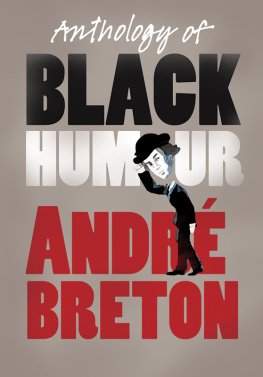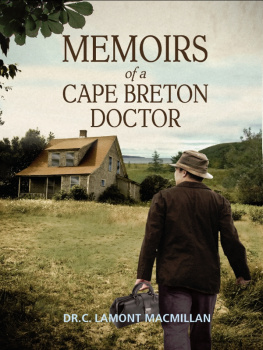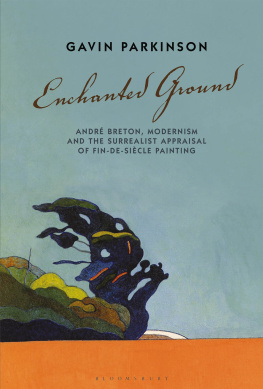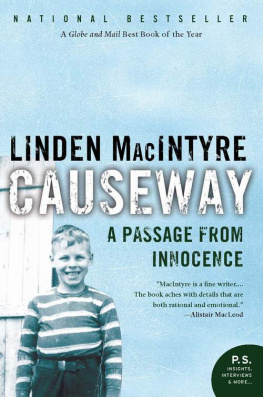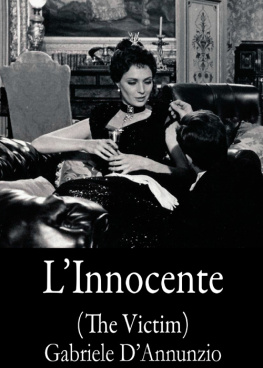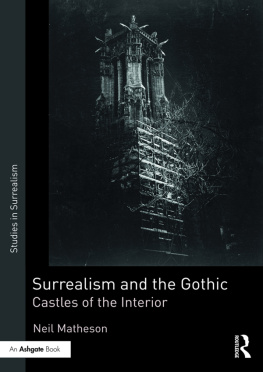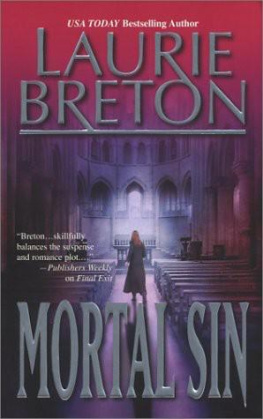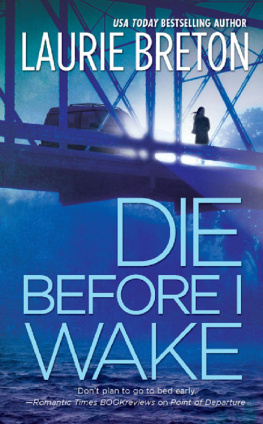ANTHOLOGY OF BLACK HUMOUR
Andr Breton
Anthology of Black Humour
Translated from the French and with an Introduction by
Mark Polizzotti
TELEGRAM
First English edition published by City Lights Books,
San Francisco, 1997
This edition published in 2009 by Telegram
ISBN: 978-1-84659-074-0
eISBN 978-1-84659-198-3
Copyright Socit Nouvelle des Editions Pauvert 1979, 2009 Translation and Introduction copyright Mark Polizzotti 1997, 2009 Acknowledgments for the use of copyrighted material appear on 413
All rights reserved. No part of this book may be reproduced or transmitted in any form or by any means, electronic or mechanical, including photocopying, recording or by any information storage and retrieval system, without permission in writing from the publisher.
This book is sold subject to the condition that it shall not, by way of trade or otherwise, be lent, re-sold, hired out, or otherwise circulated without the publishers prior consent in any form of binding or cover other than that in which it is published and without a similar condition including this condition being imposed on the subsequent purchaser.
A full CIP record for this book is available from the British Library.
A full CIP record for this book is available from the Library of Congress.
Manufactured in Lebanon
TELEGRAM
www.telegrambooks.com
Contents
Introduction: Laughter in the Dark
Bretons Anthology of Black Humour is aptly named in more ways than one. Originally intended as both a showcase for the Surrealist conception of humour and a way for its impecunious author to earn a quick advance, the book ultimately took Breton longer to assemble than practically any other work. It suffered years of publishers delays, ran afoul of the censorship board and contributed to its authors dangerously poor standing under the Vichy government, and in the final account earned Breton very little money at all. As to its philosophical impact, and despite Bretons lifelong view of it as one of his major statements, the Anthology has never received the kind of attention granted most of his other books, making do instead, in the general response to Bretons opus, with the condescending status of poor cousin.
This relegation to the second tier is unjustified, for the Anthology of Black Humour not only gathers into one volume texts by many of Surrealisms most important precursors and practitioners, but it still stands as the first and most coherent illustration of a form of humour that, as Breton notes in his introduction, has only gained in prominence since the concept was first codified. Who today in the wake not only of the Theatre of the Absurd, but even more so of the writings of Kurt Vonnegut, John Barth, et al., not to mention Monty Pythons Flying Circus and its avatars, the films of David Lynch and the Coen brothers, or even such mainstream television fare as Saturday Night Live could fail to recognize a distinct timeliness in the dark, acidic humour of Sades jovial Russian cannibal or Leonora Carringtons party-going hyena, or with the dismissive whatever echoing from the selections by Rimbaud, Apollinaire, and Jacques Vach?
There is, in fact, a lot of what today we would call attitude in these pages. This attitude, which takes the form of both a lampooning of social conventions and a profound disrespect for the nobility of literature, is perhaps the one thread that links these otherwise disparate writers: from Jonathan Swifts famous, deadpan prescriptions for overpopulation to Jacques Rigauts nonchalant relations of his suicide attempts, from Charles Fouriers delirious cosmogony to the mind-bending wordplay of Jean-Pierre Brisset and Marcel Duchamp, from Alphonse Allaiss neighbourly pranks and Alberto Savinios rude soire to Alfred Jarrys pataphysics and Charles Cross physics of love. If some of Bretons choices (particularly those that most explicitly challenge the rules of acceptable society) occasionally appear a bit heavy-handed, they nonetheless join with the others in subverting our expectations, upending our preconceived notions of life and art, and often no small feat making us laugh.
This laughter, however, is always a little green around the edges, for as Breton is quick to point out, black humour is the opposite of joviality, wit, or sarcasm. Rather, it is a partly macabre, partly ironic, often absurd turn of spirit that constitutes the mortal enemy of sentimentality, and beyond that a superior revolt of the mind. Taking his cue from Freuds remarks in Jokes and Their Relation to the Unconscious the Freudian terminology recurs throughout his presentations he describes this form of humour as the revenge of the pleasure principle (attached to the superego) over the reality principle (attached to the ego) The hostility of the hypermoral superego toward the ego is thus transferred to the utterly amoral id and gives its destructive tendencies free rein. A recipe for psychic unrest, perhaps, but hardly the stuff of mirth.
Still, despite the very modern aspect of black humour, the concept itself dates back well before Bretons definition of it, to Jonathan Swift at the beginning of the eighteenth century (Swift who was already listed in the 1924 Manifesto as being Surrealist in malice, and whom Breton here singles out as humours true initiator). Breton himself had begun appreciating this kind of humour in 1914, via some recently unveiled works by Rimbaud: as he saw it, Rimbauds offhand rejection of French nationalism during the Franco-Prussian War perfectly mirrored his own scepticism at the outbreak of World War I, and, perhaps more to the point, sounded the bitter guffaw over which the bellicose folly of his times had little hold.
But his first direct contact with the living spirit of black humour did not come until a year and a half later, during his service in the army medical corps, when he met a fellow soldier named Jacques Vach. Although the two young men knew each other for a comparatively short time, and although Vachs written output consisted of little more than a series of letters from the front, his importance for Breton can be gauged not only by his prominent inclusion in the Anthology, but also by the various essays Breton would write about their friendship over the following years (notably in The Lost Steps). It was Vach who provided Breton with his first definition of humour as it applies here a sense of the theatrical (and joyless) pointlessness of everything and whose words and actions showed the young intern just how unsettling its manifestations could be. In Vachs person, in utmost secrecy, a principle of total insubordination was undermining the world, Breton later commented, reducing everything that then seemed all-important to a petty scale, desecrating everything in its path. From that moment on, this particular form of humour or umour, as Vach spelled it would become a main preoccupation of Bretons, and a major criterion in his evaluation of works and individuals.
Nevertheless, it was not actually Breton who came up with the idea of an anthology of black humour. In early 1935, finding to his distress that his recently married second wife, Jacqueline Lamba (the heroine of Mad Love), was expecting their first and Bretons only child, and desperately short of money, he appealed to his friend Lon Pierre-Quint, the editorial director of Editions du Sagittaire, to find him a book project that would demand little time and effort, but whose commercial prospects would justify a reasonably high advance. After several false starts, Pierre-Quint and the American poet and translator Edouard Roditi, a member of Sagittaires editorial board, proposed an international anthology of writings that would gather and introduce the main proponents of
Next page
